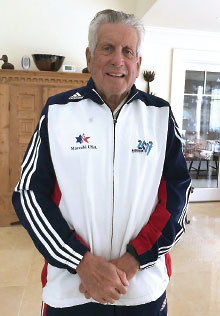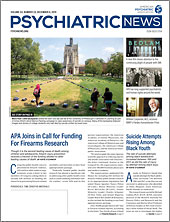“Doctor P. became increasingly angry, curt, sarcastic, and unempathic. Outside of work, he ceased all creative pursuits including work at his easel and was unable to experience sexual or intellectual satisfaction. He had lost physical strength and energy. He had little appetite. As he lost weight, he became increasingly haggard. His sleep became interrupted. At home, his wife was concerned about his increased moodiness, apathy, excessive hours of work, and growing disinterest in his adult children’s lives. Whereas he had been a loving and available grandfather, he had become morose and distracted. Only during extended vacations did his symptoms remit.”
This description of Dr. P. might seem familiar if you know a fellow physician who has experienced burnout or you have been burned out yourself.
It’s an anonymous personal account of a physician’s burnout, written in the third person, by a member of the American Academy of Psychodynamic Psychiatry and Psychoanalysis and published on the “Psychiatrist Wellbeing and Support” section of
the academy’s website. The account is one of several that now populate the page, with commentary by leaders and other academy members.
The accounts describe not only professional burnout per se, but all manner of stressful passages in the life of a physician. In addition to the narrative titled “Recognizing and Addressing Burnout,” they include accounts on adaptation to age and retirement, the experience of having a life-threatening illness, and surviving litigation, among others. The piece titled “The Stresses of Medical School and Residency” encompasses several accounts from students and trainees.
“We hope the site will help our members deal with any kind of distressful life experience including the stresses that lead to professional burnout as a physician,” academy member John Tamerin, M.D., told Psychiatric News. “My vision is that our members will be able to speak to each other in any part of the country and benefit from the wisdom that comes from shared experience. I believe this kind of human interaction can result in lifelong friendships and a deepening commitment to our work as psychodynamic psychiatrists.”
It was on a suggestion by Tamerin in 2017 that then academy president Jennifer Downey, M.D., appointed a task force to consider if and how the academy might offer support services to its members around the issue of burnout. The task force proposed that the academy’s website provide a section originally titled “Resources for Psychiatrist Support.”
Given the complexity of the subject—and that physicians may experience stressors beyond strictly defined professional burnout—the academy’s “Psychiatrist Wellbeing and Support” section aims to address a wide range of stressful circumstances that psychiatrists may encounter. As the website states: “These circumstances may range from the tediously mundane to the overwhelmingly catastrophic. These circumstances may be personal or professional. Some may concern psychiatrists especially, others may concern all physicians, and still others address in their broadest reach the stresses inherent in the human condition.”
In addition to the personal accounts, the section also includes a lengthy list of resources. “We launched this in an experimental way, but it’s taken off, and we’ve gotten inquiries and contributions from all over,” said academy member Douglas Ingram, M.D., who helped to design and build the site.
Tamerin said he believes the antidote to burnout is passion, and he is hopeful that the personal accounts on the academy’s website will help physicians rediscover what drew them to medicine, psychiatry, and psychotherapy to begin with.
“The question is, Where do you feel passion in your life? Then start to build on it. If you’ve lost it, it’s time to start looking for it.” ■
The American Academy of Psychodynamic Psychiatry and Psychoanalysis’ “Psychiatrist Wellbeing and Support” section can be accessed
here.

